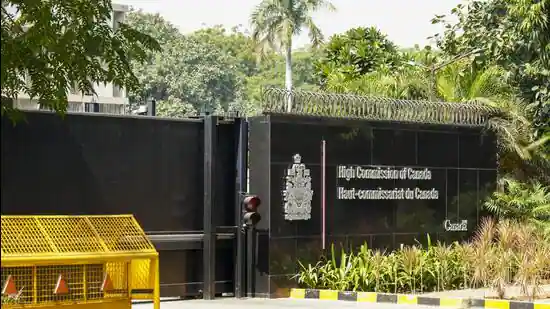Canada yet to provide evidence on Indian links to Nijjar’s killing

New Delhi has maintained that Ottawa hasn’t shared any evidence to back up its claims of an Indian link to the murder of pro-Khalistan separatist Hardeep Singh Nijjar
Canada is yet to provide evidence to back assertions made by Prime Minister Justin Trudeau and law enforcement officials regarding alleged links between Indian officials and the killing of pro-Khalistan separatist Hardeep Singh Nijjar and other criminal activity, people familiar with the matter said on Tuesday.
The diplomatic rift over the killing of Nijjar, triggered by Trudeau’s accusation more than a year ago about links between Indian government agents and the murder, took a turn for the worse on Monday, when New Delhi dismissed Ottawa’s move to designate six officials as “persons of interest” in the investigation and expelled six Canadian diplomats. India also withdrew the six officials, including high commissioner Sanjay Verma.
“The central assertion from all Canadian officials is that credible evidence has been presented to India. This is simply not true,” one of the people cited above said on condition of anonymity.
Trudeau’s news conference on Monday was the “same old Trudeau saying the same old things for the same old reasons”, the person said. The Indian side has already said Trudeau’s actions were prompted by vote bank politics, including efforts to gain the backing of the Indian and Sikh communities in Canada.
The people noted that Canadian chargé d’affaires Stewart Wheeler had reiterated Ottawa’s position while speaking to the media after he was summoned to the external affairs ministry on Monday night for lodging a protest. Wheeler was among the six diplomats subsequently expelled by India.
“Canada’s assertion was repeated by their chargé d’affaires to the press. From the very beginning, the Canadian approach has been to make vague accusations and put the burden of denial on India,” the person cited above said.
Wheeler told reporters outside the external affairs ministry the Canadian government “has done what the government of India has long been asking for” and it is time for India to “look into those allegations”. In a reference to Nijjar’s killing, he added, “Canada has provided credible, irrefutable evidence of ties between agents of the government of India and the murder of a Canadian citizen on Canadian soil.”
He added, “It is in the interest of both our countries and the peoples of our countries to get to the bottom of this. Canada stands ready to cooperate with India.”
Nijjar was already designated a terrorist by India when he was gunned down by unidentified men outside a gurdwara in the British Columbia town of Surrey in June 2023. India had dismissed Trudeau’s allegations linking Indian government agents to the killing as “absurd”, and the external affairs ministry described the latest move by Canada to designate six officials as “persons of interest” in the same investigation as “preposterous”.
While there have been multiple contacts between Indian and Canadian security officials and diplomats since the beginning of the year to discuss both the killing of Nijjar and the threat posed by Canada-based Khalistani elements to Indian diplomatic facilities and diplomats, New Delhi has maintained that Ottawa hasn’t shared any evidence to back up its claims of an Indian link to the murder.
“It is absurd that after intensively engaging the [Indian] high commissioner over the last year, the Canadian government now chooses to target him,” a second person said.
The people referred to a media briefing in Ottawa on Monday by Royal Canadian Mounted Police (RCMP) commissioner Mike Duheme and assistant commissioner Brigitte Gauvin and said no specifics were provided about any of the assertions about connections of certain individuals to India.
“There was also talk about holding people accountable. But it was never made clear who and for what,” the second person said.
Duheme told the briefing that the RCMP and other law enforcement agencies had gathered evidence that allegedly linked Indian government agents to criminal and violent activity in Canada, including homicides, acts of coercion and extortion.
The RCMP officials alleged the Indian officials collected information on the Indian community in Canada that was passed on to organised crime groups, including the Lawrence Bishnoi gang, which then used the information to carry out criminal activity.
Gauvin said the RCMP’s investigation had found “a number of criminal organisations that have been involved in the various criminal activities...the Lawrence Bishnoi gang, which is a gang that’s involved in extortions and narcotics originating from India”. She added, “That group has claimed responsibility for certain activity that was in the public.”
culled from Hindustan Times

